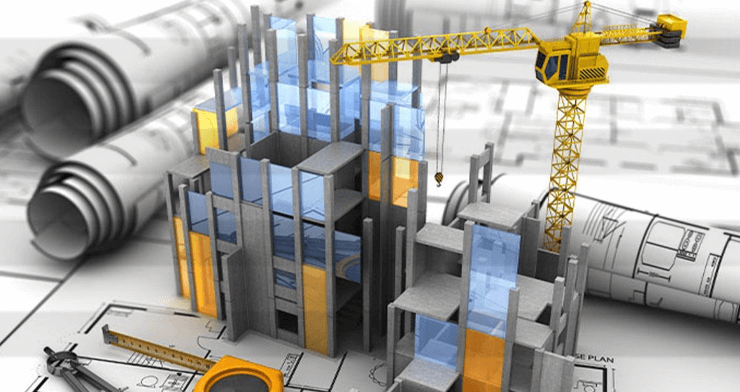How Does Commercial Construction Estimating Differ From Residential Construction Estimating?

Have you ever wondered what the difference is between commercial and residential construction estimating? Whether you are a contractor, designer, or someone looking to construct their own home or commercial structure, it’s important to understand the distinctions. Estimating for any kind of construction project can be complex and nuanced.
In this blog post, we explore how commercial construction estimating differs from residential construction estimating so that everyone involved can have peace of mind throughout the process.
Introduction to Commercial and Residential Construction Estimating
Estimating a commercial or residential construction project is a complex process that requires specialized knowledge and skills. Takeoffs Construction provides accurately estimating the cost of building materials, labor, equipment rental, overhead costs, and more can help contractors get competitive bids and win projects. It also helps ensure that projects are completed on time and within budget.
Commercial Construction Estimating
In commercial construction, estimators must consider local regulations and codes that affect the project’s cost. They must also account for any potential changes in the scope of work due to unforeseen issues or additional requirements from the owner/client.
Estimators may need to factor in environmental factors such as weather when calculating expected labor costs. Additionally, they will need to analyze blueprints carefully to make sure they are accounting for all materials needed for the project, as well as any additional costs incurred due to changes in the scope of work.
Residential Construction Estimating
In residential construction estimating, contractors must take into account factors such as property size and location when determining overall cost estimates. Estimators must also consider zoning restrictions that could affect the cost of materials or labor needed for the project.
They also need to factor in permits, insurance, and other related expenses that are commonly required by local building codes. Finally, estimators should review their plans carefully to make sure all materials and labor needed for the job are accounted for in their calculations.
In both commercial and residential construction estimating, accuracy is key. It’s important to use accurate cost estimates so contractors can bid competitively while still being able to carry out the project within budget.
Overview of the Different Types of Estimating
Construction estimating can be broken down into three main categories: conceptual estimation, elemental estimating, and detailed or quantity take-off.
1. Conceptual Estimation
Conceptual Estimation is the most basic of the commercial construction estimating methods. This type of estimate is used when there are limited project details available. The estimator will use past experience to provide a ballpark figure for the estimated cost of a project based on the limited information provided.
2. Elemental Estimating
Elemental Estimating involves breaking down the major components of a project into smaller pieces and pricing each component individually. This method provides an improved level of accuracy compared to conceptual estimation but still requires some amount of guesswork due to incomplete data.
3. Detailed Estimating
The final type of estimating is known as Detailed Estimating or Quantity Take-off. This method is the most accurate and involves analyzing all materials, labor costs and other expenses that will be incurred on a project. It also requires an accurate measurement of the square footage or cubic footage of the area to be constructed in order to determine how much material will be needed for the job.
No matter which commercial construction estimating method you use, one thing remains true: accuracy is key. Accurate estimates help ensure that contractors are able to complete projects within their budget constraints and avoid costly overruns due to underestimating or miscalculations.
The Differences Between Commercial and Residential Construction Estimation
The type of construction project affects the accuracy of an estimate. Because most commercial projects are larger and more complex than residential projects, they usually require a more detailed and accurate estimation approach. Commercial projects may involve multiple stakeholders, different types of materials, specialized equipment, and other components that can affect the final cost.
In commercial construction estimating, contractors must account for all costs associated with completing the build from labor to any necessary permits or licenses required by law. Furthermore, because there is typically competition involved in bidding on commercial jobs, it is important for contractors to be thorough when creating their estimates in order to ensure they remain competitive.
On the other hand, residential construction has fewer complex elements than commercial projects so estimating requirements are usually less stringent. Residential projects may involve smaller spaces and fewer stakeholders, which makes the estimation process simpler.
Overall, it is important for contractors to understand the differences between commercial and residential construction estimating before they begin a project. Knowing the complexities and requirements of both types of projects can help ensure accurate estimates that won’t cut into your profits.
What is Involved in Commercial Construction Estimation?
Commercial construction estimation is the process of determining how much a project will cost and estimating the timeline for completion. It’s an important step in the construction process and requires both accuracy and attention to detail. Estimators must take into account labor costs, materials costs, transportation costs, equipment rentals, overhead, and other related expenses that may arise throughout the course of a job.
They must also consider any logistical challenges that could cause delays or increased expenses when calculating contractor bids before submitting them to potential clients. To ensure accurate estimates, estimators often use specialized software programs or manual methods such as blueprints, catalogs, and price lists to factor in all necessary costs.
By having clear expectations from the start, contractors and clients can avoid potential disputes over cost overruns or delays down the line. As such, it is important for both parties to have a reliable estimate in hand before they enter into any deal. Commercial construction estimators must possess strong communication skills so that they can accurately explain their estimates to their clients and contractors alike.
What is Involved in Residential Construction Estimation?
Residential construction estimation involves more than just crunching some numbers. It requires a thorough understanding of materials, labour costs, and the complexity of the project in order to accurately estimate how much something will cost to build.
Estimators must also be aware of local costs such as permits and fees that can affect the overall budget. It’s not enough to simply add up the cost of each material; it’s also important to consider items like delivery expenses, installation fees, overhead costs, and subcontractor rates.
With proper estimation techniques in place, residential construction projects can stay on budget and come in on time. The accuracy of the initial estimate can be an invaluable asset to any construction project. It is important for estimators to stay up-to-date on changes in costs and regulations in order to keep their estimates as accurate as possible.
With this information, residential construction projects can come in on budget and on time a win-win result for everyone involved!


